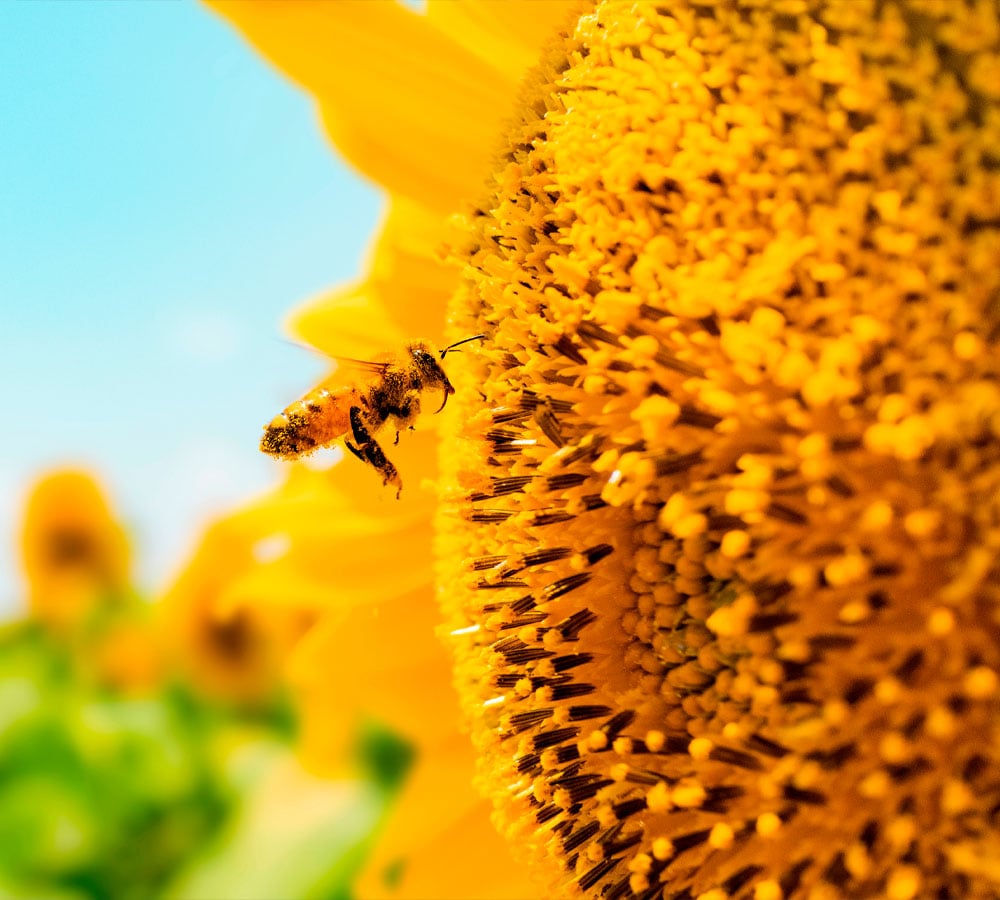Post-its: we use them almost daily for short notes and brainstorming sessions in offices worldwide. But how sustainable are these pieces of paper really? In this blog, our Zero Waste Officer Milan shares insights on the environmental impact of post-its and the challenges of waste disposal. As a Zero Waste expert, he also provides practical tips to reduce this waste stream.
The material
A post-it consists of paper and an adhesive layer, which makes the bills stick easily. However, precisely this adhesive layer, which often contains the well-known but harmful PFAS, causes problems during disposal. PFAS (poly- and perfluoroacyl substances) are known as "forever chemicals"-chemicals that are not biodegradable. Although post-its are largely made of paper and therefore often end up in the paper bin, PFAS and other additives interfere with the recycling process. This is because these chemicals cannot be properly removed during recycling, leading to contamination of wastewater at the paper mill and loss of quality of the recycled paper.
The processing of PFAS-containing products
Moreover, processing PFAS-containing products such as post-its poses additional risks. During the incineration process, PFAS can remain in the slag of the waste incinerators. These slags, the solid residues after incineration, consist of non-combustible particles such as metals, minerals and ash residues. These slags are sometimes reused as construction materials, such as in road construction or concrete, but pose an environmental risk when they contain harmful substances such as PFAS. Rainwater can cause these substances to leak (also known as leaching) into the soil or groundwater, which has harmful effects on the environment.
The size of the waste stream
Post-its are used in almost every office in the world. This results in millions of pounds of waste every year. An average office uses thousands of post-its each year, and in larger companies this number increases even further. Due to their short lifespan of use, they are often thrown away quickly, which greatly increases the amount of waste.
Laws and regulations
The regulations surrounding PFAS are evolving. PFAS have been used for years because of their water, dirt and grease repellent properties. Due to their chemical properties, PFAS are not degradable in the environment. Furthermore, potential health risks from long-term exposure are also causing increasing concern. This has led both the European Union and the United States to take steps to restrict the production and use of PFAS.
In Europe, the European Chemicals Agency (ECHA) is working to ban all PFAS in consumer products, including the glue used in post-its. In addition, rules around PFAS are covered by broader initiatives such as the EU Green Deal and the Chemical Strategy for Sustainability. In the United States, the Environmental Protection Agency (EPA) has also indicated its intention to implement PFAS bans, which could mean that products containing PFAS will disappear from the market entirely in a few years.
Countries such as the Netherlands, Germany and Denmark are additionally taking steps themselves to tighten regulation of PFAS. Milan gives some examples:
- Netherlands: Together with Germany, Denmark, Sweden and Norway, the Netherlands has proposed a European ban on PFAS use.
- Germany: Further tightened standards for PFAS in drinking water to protect citizens' health.
- Denmark: Denmark was the first EU country to establish an alliance on the use of PFAS in food packaging to limit the presence of PFAS in food.
Belgium is also taking several steps to minimize the environmental and health risks posed by PFAS. For example, the Federal Agency for the Safety of the Food Chain (FASFC) has been conducting research on PFAS in the food supply for years, and a comprehensive inventory of sites with potential PFAS contamination is being conducted in Flanders through OVAM. Belgium is also following European regulations for limiting PFAS use and investigating further protective measures.
PFAS in the production of post-its
In 2022, a major manufacturer of post-its and a global chemical products company, announced plans to stop using PFAS in their production line by 2025. This decision came after growing concerns about the harmful effects of PFAS on the environment and human health.
However, stopping PFAS also brings challenges. Alternative materials must provide the same adhesive strength without being bad for the environment. PFAS-free adhesives already exist, but they must be further developed by the industry to meet the demands of ease of use and durability.
Despite this outlook, post-its containing PFAS remain a challenge for now, due to the current stock that remains in circulation and will continue to affect waste streams for years to come.
Immediate action by companies required to reduce PFAS
Nov. 14, 2024 State Secretary for the Environment Jansen (PVV) wrote to the House of Representatives that companies emitting PFAS must take immediate action to drastically reduce emissions. This means that companies must make plans now to stop using the substances. If they fail to prevent the use of PFAS, companies must take measures to prevent the substances from being released into the air or water.
Zero Waste solutions
Fortunately, there are already some sustainable alternatives to traditional post-its that companies can use to reduce their impact. Milan recommends the following solutions:
- Reusable writing boards: Whiteboards and erasable writing boards are popular options for temporary note-taking and brainstorming sessions. They avoid paper waste and are endlessly reusable.
- Digital notes: Companies are increasingly switching to digital tools, which reduce paper waste and offer the convenience of always-accessible notes.
- Eco-friendly sticky bills: Some manufacturers make post-its from recycled paper and use biodegradable adhesives. These options are more environmentally friendly, although they sometimes still contain synthetic substances.
In addition, there are alternatives to the adhesive itself:
- Biodegradable glues: Plant-based glues are being experimented with, which do not contain PFAS and break down more easily in the environment.
- Natural resins: Adhesives based on natural resins are less environmentally damaging, but offer a strong bond.
Idea or solution? We would like to hear it
Conclusion: Although post-its are largely made of paper, they still belong in residual waste because the harmful substances cannot be completely removed. Milan, our Zero Waste Officer, fortunately sees more and more companies opting for environmentally friendly alternatives and sees opportunities in the regulations surrounding PFAS. By choosing Zero Waste solutions, your company too can reduce post-its waste and contribute to a more sustainable work environment.

Ask our Zero Waste Officer
Are you unsure whether certain items in your office are unnecessarily ending up in general waste? Milan is happy to assist. Send your question to marketing@milgro.nl, and who knows, he may explore innovative solutions for you.
Stay informed
Want to stay updated on all the latest developments? Follow us on LinkedIn and Instagram or subscribe to our newsletter. Curious about how Milgro can support your business operations and waste process? Contact us












